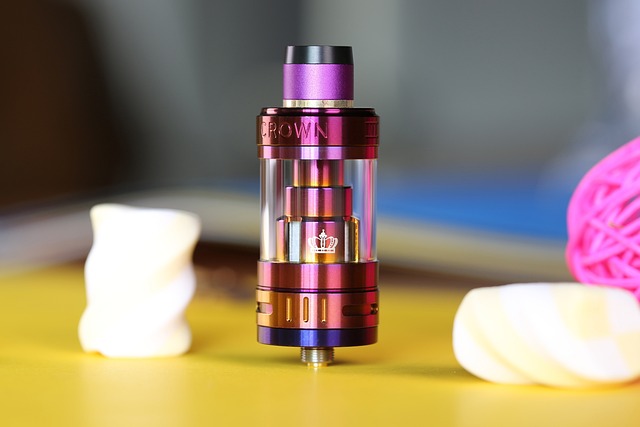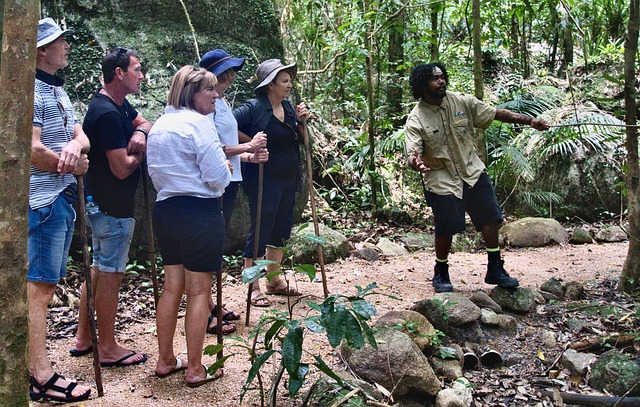Delta 8 THC, a psychoactive cannabinoid found in hemp and closely related to Delta 9 THC, offers distinct effects that are typically less potent. It is federally legal under the 2018 Farm Bill in the U.S., provided it contains less than 0.3% Delta 9 THC by weight, but its legality varies by state. Delta 8 THC can be extracted from hemp and produced through chemical synthesis, appearing in various forms like vapes, edibles, tinctures, and concentrates. As the market for these products grows, consumers are encouraged to check local regulations and purchase from reputable sources offering third-party lab test results for quality and safety assurance. Delta 8 THC interacts with the endocannabinoid system and has been associated with potential therapeutic benefits, such as reducing nausea, alleviating anxiety, and stimulating appetite. However, its effects, pharmacokinetics, and safety profile need further research. The regulatory environment for Delta 8 THC is complex due to the lack of FDA guidance, leading to inconsistent state regulations and a market that is closely watching for future legislative changes and scientific advancements.
Discover the nuanced world of Delta 8 THC, a lesser-known compound derived from hemp that’s garnering attention for its unique effects. As we delve into the legal status and diverse sources of this intriguing cannabinoid, we’ll unravel the science behind its molecular structure and the potential impacts on well-being. Explore the extraction methods leading to a range of Delta 8 THC products and gain insights into safe consumption practices from user experiences. Amidst the evolving regulatory environment, this article offers a comprehensive overview of the current landscape and prospects for this emerging cannabinoid. Join us as we navigate the intricacies of Delta 8 THC and its place in the hemp-derived product spectrum.
- Understanding Delta 8 THC Legality and Sources
- The Science Behind Delta 8 THC Molecule and Its Effects
- Delta 8 THC from Hemp: Extraction Process and Product Varieties
- Safety, Dosage, and Consumption Experiences with Delta 8 THC
- Regulatory Landscape and Future Prospects for Delta 8 THC Products
Understanding Delta 8 THC Legality and Sources

Delta 8 tetrahydrocannabinol (THC) is a psychoactive cannabinoid found in the Cannabis sativa plant, which includes both hemp and marijuana. It is structurally similar to Delta 9 THC, the primary psychoactive component of cannabis, but with a different molecular arrangement at the 8th carbon atom, resulting in effects that are often considered less potent. Legality-wise, Delta 8 THC derived from hemp is federally legal under the 2018 Farm Bill in the United States, provided it contains less than 0.3% Delta 9 THC on a dry weight basis. This distinction in THC isoisomers allows for the legal differentiation between Delta 8 and Delta 9 THC. However, state laws vary significantly, with some states imposing their own restrictions or bans on all forms of THC. It’s crucial for consumers to be aware of their local regulations before purchasing or using products containing Delta 8 THC.
The sources of Delta 8 THC are primarily from hemp through a process that involves the extraction and conversion of other cannabinoids like CBD (cannabidiol). This conversion is typically achieved through chemical synthesis or through a process involving oxidative aging of hemp-derived CBD. The resulting Delta 8 THC can be found in various products, including vapes, edibles, tinctures, and concentrates. Due to the growing interest in cannabinoids for wellness and recreational use, the market for Delta 8 products has expanded rapidly. As such, consumers should exercise caution and prioritize purchasing from reputable sources that provide third-party lab test results to ensure product safety and efficacy.
The Science Behind Delta 8 THC Molecule and Its Effects

Delta-8-tetrahydrocannabinol (Delta 8 THC) is a psychoactive cannabinoid found naturally in the Cannabis sativa plant, including hemp. It is structurally similar to Delta-9-tetrahydrocannabinol (Delta 9 THC), the primary psychoactive component of cannabis, but with a different arrangement of atomic bonds that result in distinct effects. The Delta 8 THC molecule interacts with the body’s endocannabinoid system by binding to both CB1 and CB2 receptors, which are part of a network involved in regulating various physiological processes such as mood, pain, appetite, and memory. This interaction can lead to effects that include mild psychoactive effects, reduced nausea and vomiting, decreased anxiety, and potentially increased appetite. Unlike Delta 9 THC, Delta 8 THC is considered to have a lower psychoactivity potency, which may make it a less intense experience for users.
The effects of Delta 8 THC are believed to be mediated through its affinity for the CB1 receptors found primarily in the central nervous system and the CB2 receptors found throughout the body. While the scientific community is still exploring the full scope of its effects, preliminary research suggests that Delta 8 THC may offer some therapeutic benefits, including potential anti-nausea, anxiolytic, and appetite-stimulating properties. Its relative mildness in comparison to Delta 9 THC has led to interest among consumers seeking a cannabinoid experience with less psychoactive impact. However, more research is needed to fully understand the pharmacokinetics, therapeutic potential, and safety profile of Delta 8 THC.
Delta 8 THC from Hemp: Extraction Process and Product Varieties

Delta 8 tetrahydrocannabinol (THC) is a psychoactive cannabinoid found in the Cannabis sativa plant, which includes both hemp and marijuana varieties. Delta 8 THC derived from hemp must contain less than 0.3% THC on a dry weight basis to comply with federal regulations in the United States. The extraction process for Delta 8 THC involves several steps that transform the naturally occurring minor cannabinoids found in hemp into Delta 8. This process typically starts with a solvent extraction from hemp biomass, followed by a series of refinement and isolation techniques to concentrate and purify the Delta 8 compound. The purity level is crucial for both safety and efficacy, ensuring that consumers receive a consistent and quality product.
Once isolated, Delta 8 THC can be infused into a variety of products, offering a range of experiences tailored to consumer preferences. These products include vape cartridges, edibles like gummies or chocolates, tinctures, and smokable flower options. The market for Delta 8 THC from hemp has expanded rapidly, with new product lines emerging regularly. Each product type offers different onset times and durations, allowing users to select the most suitable form based on their desired effects and consumption method preferences. It’s important to note that while Delta 8 THC shares similar properties with Delta 9 THC, its effects may differ in intensity and psychoactive impact due to its lower potency. Users are encouraged to consume responsibly and be aware of the legal status of Delta 8 THC in their jurisdiction before use.
Safety, Dosage, and Consumption Experiences with Delta 8 THC

Delta 8 THC, a psychoactive compound found in hemp, has garnered attention for its unique effects and potential benefits. Safety considerations with Delta 8 THC revolve around its psychotropic properties, which can vary in intensity depending on the individual’s physiology and tolerance. As with any substance that alters cognitive function, it is advisable to approach Delta 8 THC with caution, especially for those with pre-existing health conditions or who are taking other medications. The Food and Drug Administration (FDA) has not approved Delta 8 THC for any medical use, which means that products on the market may not be consistently regulated for purity and potency.
Dosage of Delta 8 THC can range widely from one product to another, necessitating careful attention to the recommended serving size as indicated by the manufacturer. Consumption experiences with Delta 8 THC are subjective and can include a range of effects such as euphoria, relaxation, and altered perception. Users often report a milder psychoactive experience compared to Delta 9 THC, which may be appealing for those seeking the benefits of hemp without intense intoxication. It is important to start with a low dose to gauge individual sensitivity before gradually increasing the dosage if needed. Consumption methods include inhalation through vaporizers or flower and ingestion via edibles, each affecting onset and duration of effects. Users should be aware of their surroundings and adhere to local laws when consuming Delta 8 THC, as its legal status can vary by region.
Regulatory Landscape and Future Prospects for Delta 8 THC Products

The regulatory landscape surrounding Delta 8 THC, a psychoactive cannabinoid found in hemp, is currently undergoing significant evolution. As of the knowledge cutoff in 2023, the 2018 Farm Bill legalized hemp-derived products containing less than 0.3% Delta 9 THC at the federal level in the United States, but has remained silent on Delta 8 THC specifically. This ambiguity has led to a patchwork of state regulations, with some states banning or restricting its sale and others treating it like other hemp-derived cannabinoids. The Food and Drug Administration (FDA) plays a crucial role in regulating these products; however, as of the cutoff date, there are no specific regulations that directly address Delta 8 THC. As such, consumers and businesses must navigate this complex legal terrain carefully.
Looking ahead, the future prospects for Delta 8 THC products hinge on several factors. The FDA is expected to issue more concrete guidance on cannabinoid products, which will likely impact how Delta 8 THC can be produced, marketed, and sold. Additionally, as more research emerges regarding its effects and safety profile, consumer perception and demand could shift. Legislative changes at the federal or state level could also clarify or restrict the availability of these products. The evolving understanding of Delta 8 THC’s pharmacological properties will further influence its regulatory status. Stakeholders in the hemp industry are closely monitoring these developments, as they will shape the market and determine the extent to which Delta 8 THC can be integrated into consumer goods.
In conclusion, the emerging landscape of Delta 8 THC derived from hemp presents a complex interplay between legal considerations, scientific understanding, and consumer experiences. As outlined in this article, the extraction process from hemp yields a variety of products that offer unique effects, yet their legality varies across jurisdictions. The science behind Delta 8 THC underscores its distinct molecular structure that influences its psychoactive properties, differentiating it from other cannabinoids. Users report a range of experiences, suggesting both potential therapeutic benefits and recreational value. However, the regulatory framework is still evolving, with ongoing developments that will shape the future use and availability of Delta 8 THC products. It is clear that this compound represents a significant area of interest in the broader cannabinoid market, warranting continued research and responsible regulation to ensure safe consumer access.
